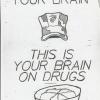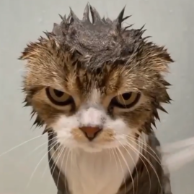I'm doing doctoral work now with a lot of writing in management and research methods- both common subjects for which there is a shit-ton of work already published. We are required to submit everything we write through Turnitin, which crosschecks for textual matches against a huge variety of other writing. I grant you I'm writing this stuff to demonstrate my mastery of common concepts, not to generate new ideas - but I'd suggest that would give me even more opportunity to plagiarize if I chose to.
It turns out that nothing I've written so far has tripped an alarm for plagiarism. In fact, the only matching text in any of my papers are things you'd expect to match, such as if I've included (and referenced) a direct quote, or my citation list (which will, of course, be identical to the original citations). In fact, I'm pretty impressed at how good the system is at finding matching text, and not flagging text that I've written completely on my own. I was concerned that with the huge amount of literature out there something I've written all on my own must match something someone else has written, but that just hasn't happened.
We can (and are strongly encouraged to) run our stuff through before turning it in to be sure we haven't inadvertently forgotten to reference something. And while Turnitin is a common system for this, there are others - including some you can subscribe to without any academic affiliation and are pretty cheap on a "per page" basis.
What this tells me is that it's not hard at all to avoid plagiarism, even if you're writing on common topics and arrive at the same conclusions as others. it's also really easy to get caught if the academic institution is making even a minimal effort at checking.
Writing on a topic that others have written on, doing your own thinking, research and writing, and using other sources (properly referenced) - and arriving at the same conclusion that others have - is not plagiarism or academic dishonesty. It may or may not be of academic value, may or may not qualify for publishing and may or may not meet the requirements for a thesis or dissertation, but it's just not academic dishonesty.
With that said, if what the NYT reports about his work is true, it's pretty clearly academic dishonesty - at least it would be considered academic dishonesty in the mainstream academic world. I see that the AWC plans to run his paper through a plagiarism checker, that's a great idea that they should have done in 2007 (yes, they were available then). Better yet, require the student to run it through and submit an originality report with the paper. It takes about 0.69 seconds. Maybe it wasn't quite so easy in 2007, but I'm pretty sure it wasn't that hard. The only way I see that he gets a pass is if AWC is willing to 'fess up that they just didn't address this with their students in that time period (I've had it beaten into my head at each of the four academic institutions I've done work at since 2008).
If the findings reported in the NYT are confirmed, he'd be screwed on an academic dishonesty violation at any major academic institution. Does that disqualify him from elected political office? I don't know about that one. You be the judge.
(edits - spelling)








